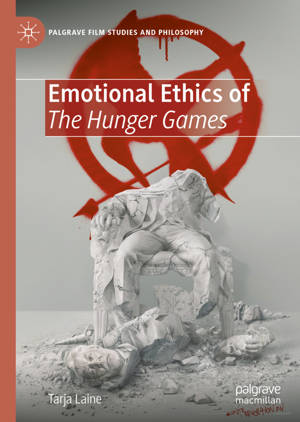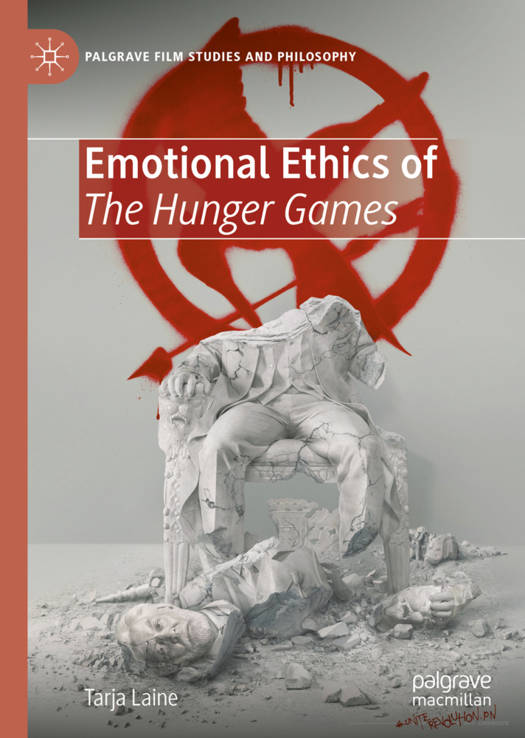
- Afhalen na 1 uur in een winkel met voorraad
- Gratis thuislevering in België vanaf € 30
- Ruim aanbod met 7 miljoen producten
- Afhalen na 1 uur in een winkel met voorraad
- Gratis thuislevering in België vanaf € 30
- Ruim aanbod met 7 miljoen producten
Omschrijving
''The Hunger Games movies have become iconic symbols for resistance across the globe. Tarja Laine proposes that this is not caused by their status as exciting cinematic spectacles, but by their engaging our emotions. Laine uses The Hunger Games as key texts for understanding our world, demonstrating that ethics do not originate from rational considerations, far removed from those mucky things called emotions. But rather that emotions are at the core of cinematic ethics."
--William Brown, Author of Supercinema: Film-Philosophy for the Digital Age
''In this elegantly written exploration of the relationship between aesthetics and emotion in The Hunger Gamestrilogy, Tarja Laine illuminates the power of film to embody ethical conflict. Deftly interweaving film-philosophy and close analysis, Laine traces how these films mobilise complex emotions, nuancing our thinking about cinema and the spectator. Laine's book takes The Hunger Games films seriously, demonstrating with verve why they matter."
--Catherine Wheatley, Senior Lecturer in Film Studies, King's College London, UK
''In this fresh, engaging, and insightful study of The Hunger Games film trilogy, Tarja Laine explores the crucial role that emotions play in appreciation of the ethical qualities of the movies. She forges productive dialogues between a range of film theory, scholarship on moral philosophy, and debates on ethics, as she performs a multi-layered investigation of the aesthetic qualities of the trilogy, the multiple emotions embodied in these qualities, and the philosophical-ethical insights that are in turn embedded in these emotions. The cinematic connection between emotions and ethics that emerges through Laine's detailed textual analyses confronts us with complex moral dilemmas while enriching our aesthetic experience.''
--Sarah Cooper, Professor, Film Studies Department, King's College London, UK
Specificaties
Betrokkenen
- Auteur(s):
- Uitgeverij:
Inhoud
- Aantal bladzijden:
- 196
- Taal:
- Engels
- Reeks:
Eigenschappen
- Productcode (EAN):
- 9783030673338
- Verschijningsdatum:
- 18/05/2021
- Uitvoering:
- Hardcover
- Formaat:
- Genaaid
- Afmetingen:
- 148 mm x 210 mm
- Gewicht:
- 403 g

Alleen bij Standaard Boekhandel
Beoordelingen
We publiceren alleen reviews die voldoen aan de voorwaarden voor reviews. Bekijk onze voorwaarden voor reviews.











